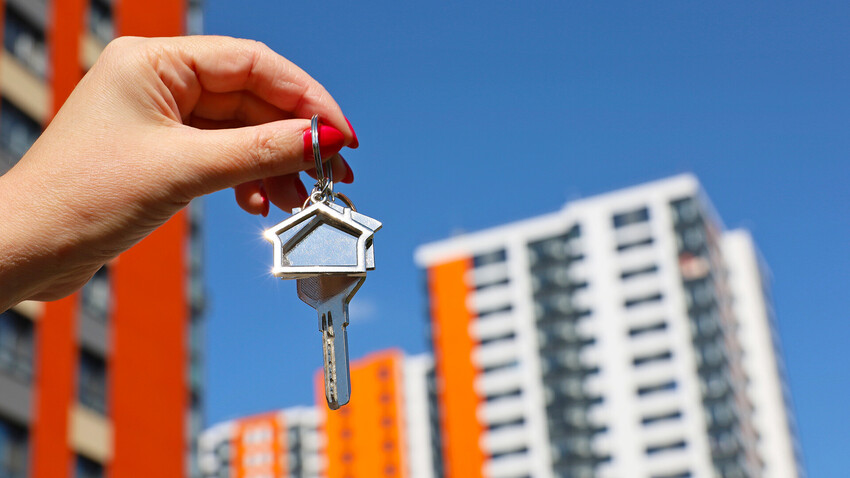
There are two main ways of looking for an apartment – online (and via an app) or through a real estate agency.
The first option is quite simple: go online, look for a suitable option, contact the owner and organize a viewing. The most popular services in Russia are CIAN, Avito, and Yandex.Realty – with their help, you can find an apartment even before arriving in the country. They are also available as an app (check your app store for availability).
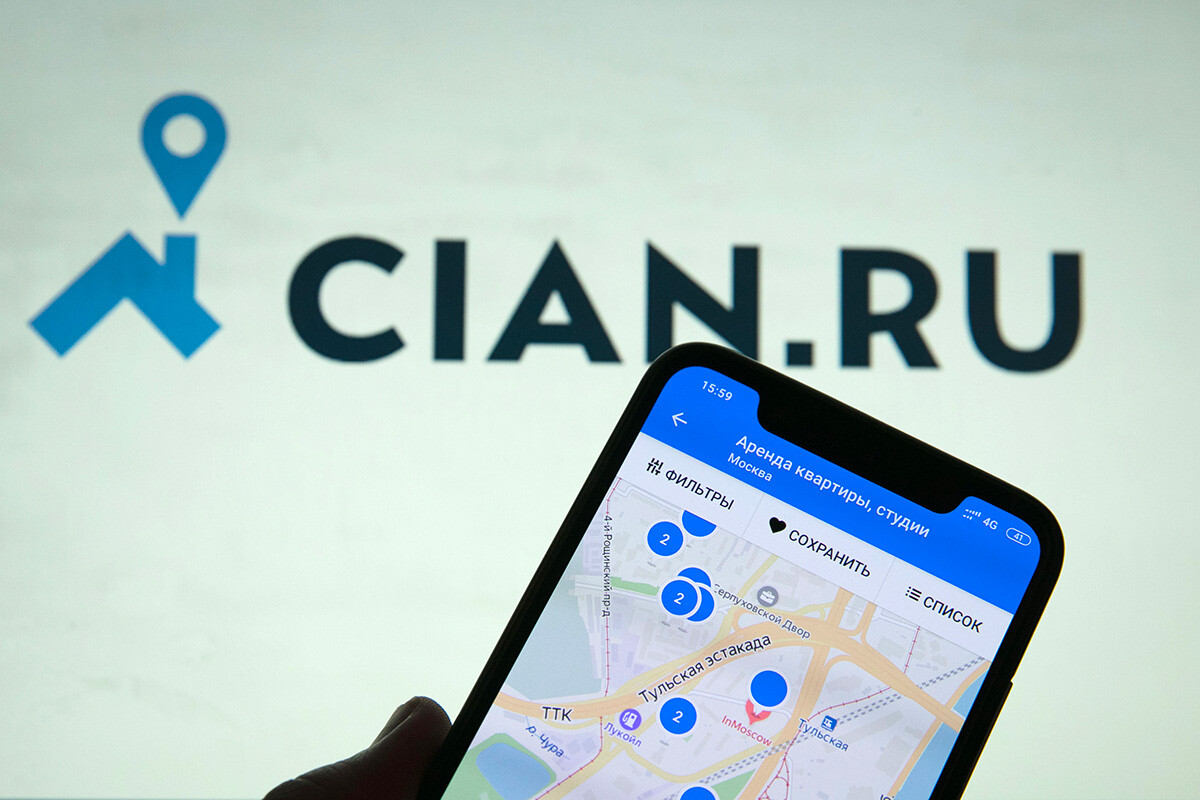
This method allows you to avoid intermediaries and contact the apartment owners directly (using various filters). This will help save money on real estate agent services; however, all stages of preparation will be your responsibility.
Another advertisement platform is social networks. Many cities have theme groups for accommodation renting. For example, for Moscow, it’s the Flats for friends group (you can post your own ad and accept property owners’ requests), for St. Petersburg – Стопагент (with placements directly from property owners).
The real estate agent option is, naturally, more expensive. However, it means that all the search and contact work will be done for you for a broker’s fee. Each agency has its own prices, but, most often, securing accommodation through a real estate agent will cost you the equivalent of a month’s rent.
Alright, you’ve found a suitable option and are thinking about renting it long-term. You’re okay with the monthly rent price and you’re ready to contact the owner. However, the price in the ad may not be final.
Utility bills
Some renters only specify the cost of the rent itself, which doesn’t include utility bills (electricity, water, gas and grounds maintenance), the Internet or TV. Be sure to clarify during the viewing what the price of the rent includes and what has to be covered separately.
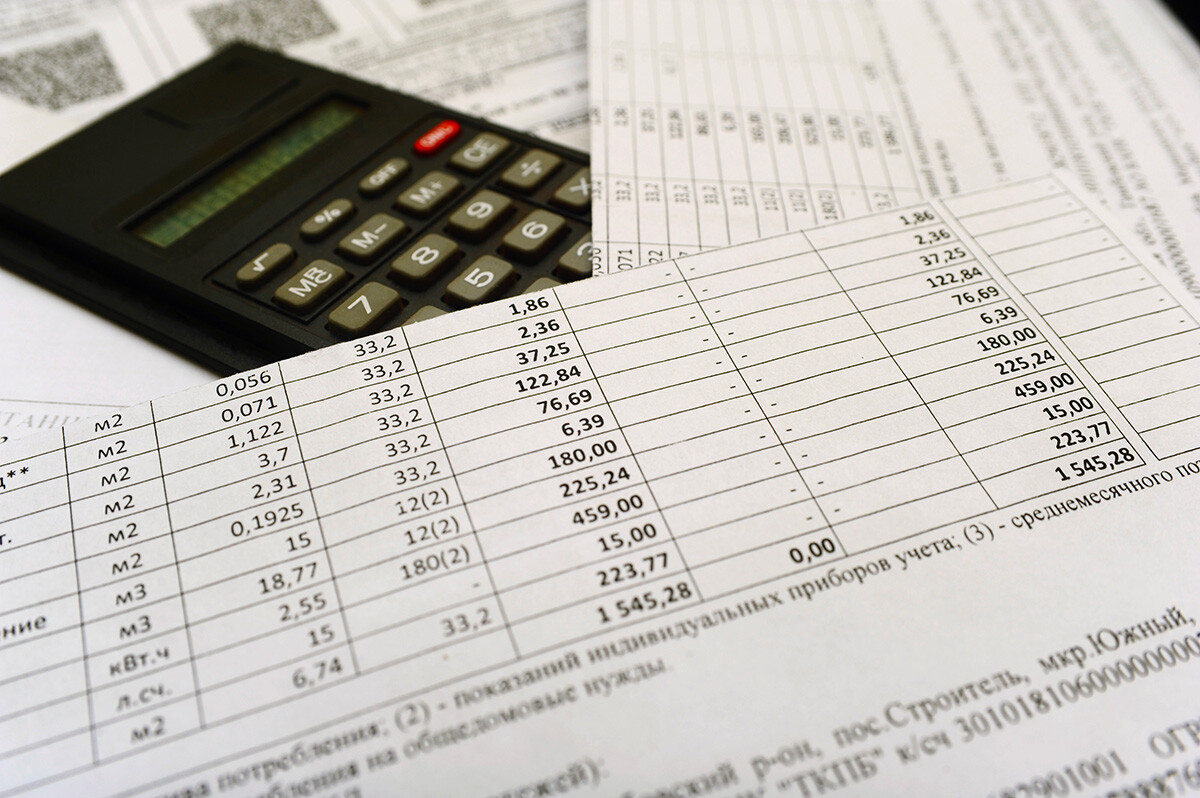
The cost of utility bills usually fluctuates between 2 to 6 thousand rubles (approx. $25-$70) per month and can also vary depending on the season, due to central heating. The heating season begins in October and ends in April; many apartment blocks in Russia feature central heating, so you’ll have to pay for this service regardless – also, in most blocks with central heating, you can’t regulate it as you wish.
Contract
A contract is mandatory for long-term rent – it protects your rights, as well as the rights of the owner. Make sure to specify the actual address and what you are renting in the contract: if it’s an apartment, then it should say ‘квартира’ (not ‘жилое помещение’ – ‘a dwelling’ or ‘жилое пространство’ – ‘living space’).

Also, make sure to specify in your contract the price of rent, the deposit (we’ll talk more about it below), the rent term, the responsibilities of the parties and the inspections (how often the owner can check on the property and how long ahead of time they must notify of their visit).
If you didn’t specify the rent term in your contract, then, by default, the contract is concluded for a period of 5 years.
Deposit
Right after the contract registration, you will be asked to pay a deposit (or a bond). It’s a one-time payment as a guarantee that both you and the renter will comply with the terms of the contract. For example, if you damage the owner’s property, your deposit will be used to cover replacing the damaged item. According to law, your deposit should be given back to you upon moving out of the apartment, provided, of course, you didn’t break any rules of living in it. The size of the deposit is determined by the owner themselves; it can swing from either 20% of your monthly rent to as much as 200% (which is also within the norm).
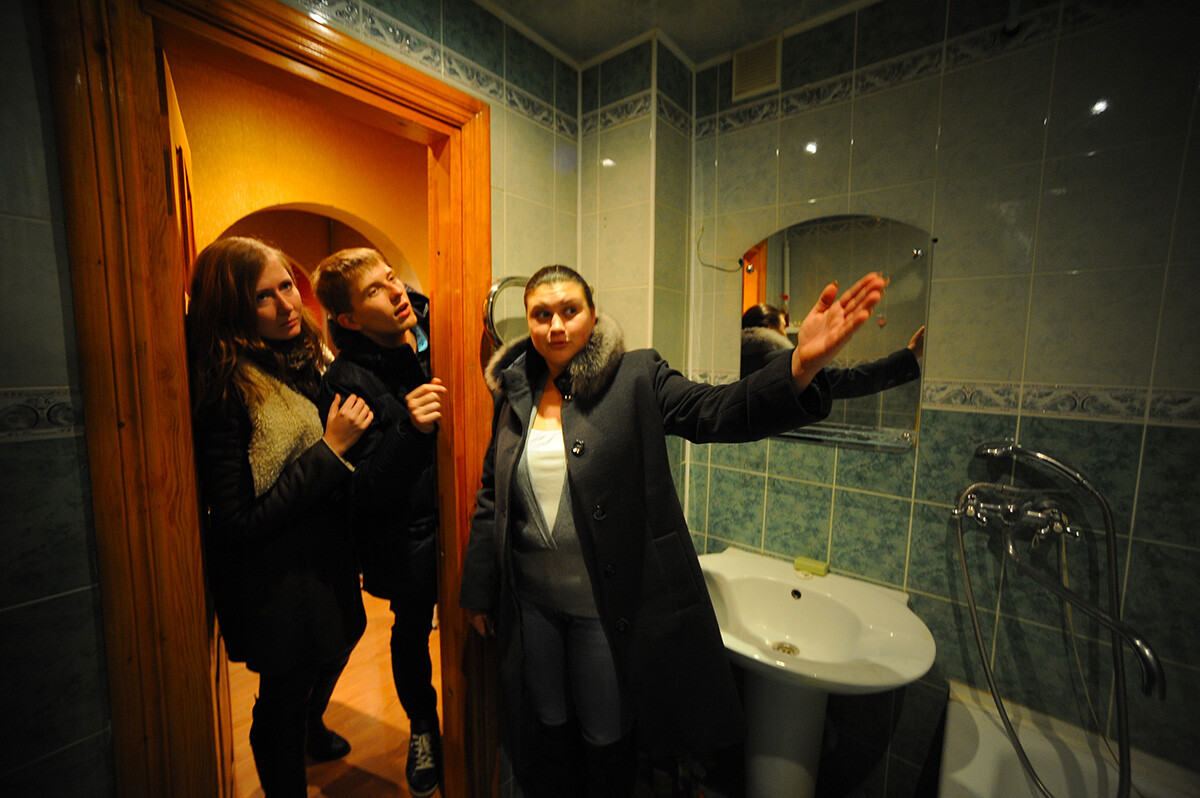
However, if the required deposit cost is too high (5-6 months of rent), inquire about the specific reasons for such a large deposit sum and also re-read the contract carefully – this payment must be detailed there.
Delivery-Acceptance Act
This is an important document that is composed along with the contract upon moving in and upon moving out. It is an itinerary of everything that is present in the apartment: furniture, appliances, existing damages. It protects you from unlawful claims if you have a conflict with the owner upon moving out.
Do you need to register in the apartment?
Yes. This step is very important: Foreign citizens must obtain temporary or permanent registration of residence – meaning at the address where you want to rent accommodation.
The renter is supposed to process the registration, since they own the property; however, not everyone is ready to register a stranger in their apartment, even if temporarily. If the renter agrees, you have to have a package of documents ready to present: passport, notice of arrival, visa and migration card. The registration is completely free and usually reviewed within one working day.
It’s easier to rent an apartment short-term. It can be done through a short-term accommodation rental website. The most popular among those is Ostrovok (Booking.com and Airbnb do not operate in Russia). A rent agreement is not necessary when booking through the website.
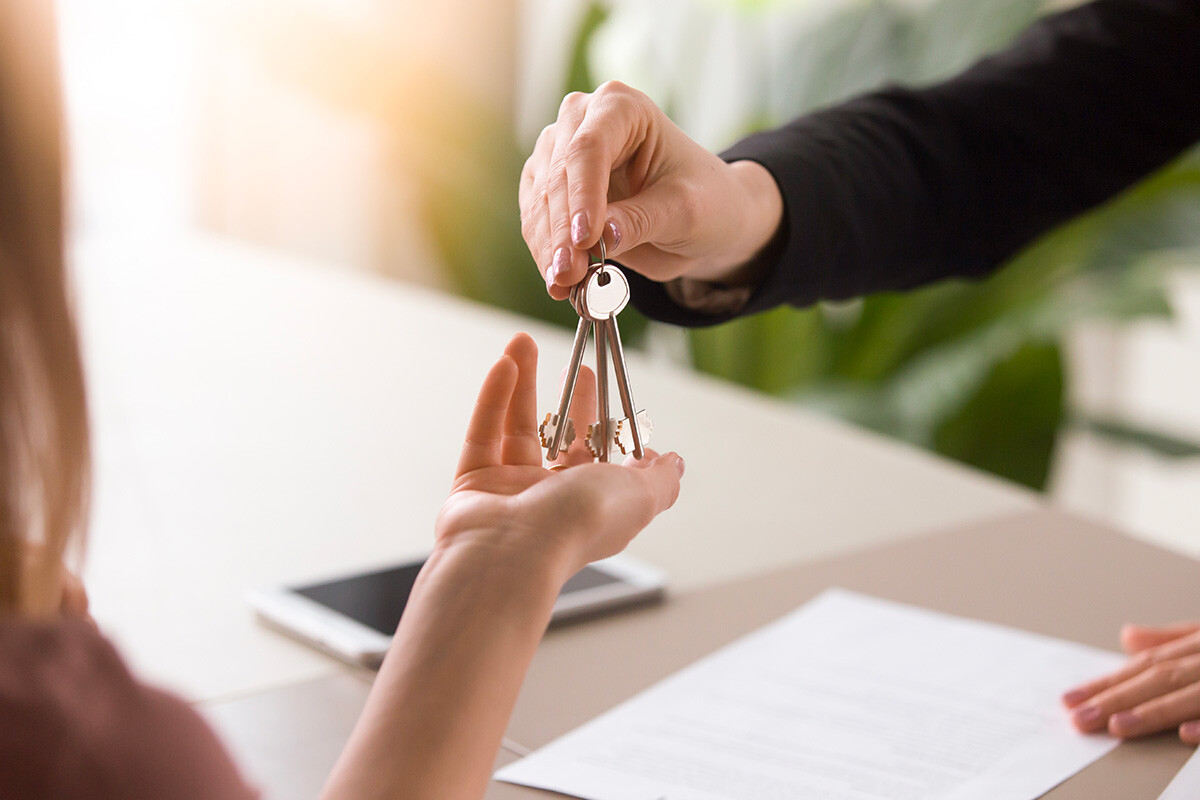
Short-term accommodation can also be found through CIAN, Avito, or Yandex.Realty (by choosing ‘per day’ in the search filter). However, in the majority of cases, the owner will ask for a 100% advance payment for the entire duration of stay; but, you don’t need to worry about utility bills, Internet or TV. In the majority of cases you also won’t need to pay a deposit.
When looking for an apartment online, you need to carefully study all the offers. An ad should have all the main information about the place: the rent price, the term lengths, the list of available appliances, as well as photos of the place itself – the more of them, the better. You should also pay attention to when the ad was placed; if an apartment hasn’t been rented out for a long while, perhaps, there’s something wrong with it.
There’s also the possibility of stumbling upon scammers, so we’ve prepared a short list of red flags that will help you spot one:
If using any of Russia Beyond's content, partly or in full, always provide an active hyperlink to the original material.
Subscribe
to our newsletter!
Get the week's best stories straight to your inbox